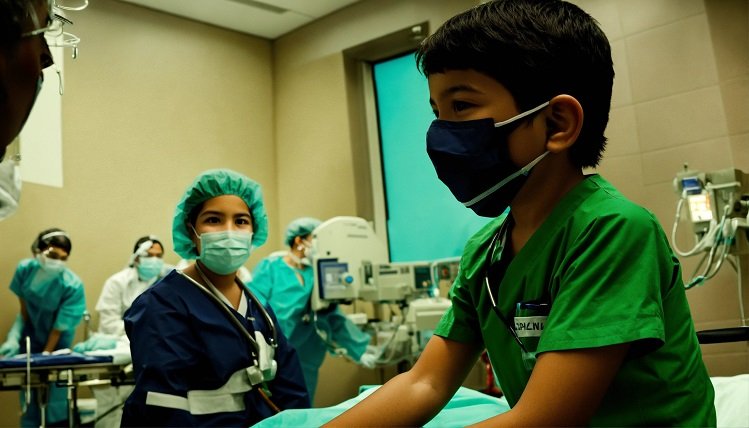Introduction
Surgical technology, sometimes referred to as operating room technology or surgical assistance, is a vital and active topic in the healthcare sector. It centers on providing assistance for surgical procedures by making sure the operating room runs smoothly, keeping the area sanitary, and helping the surgical team as needed throughout the procedure. Let’s examine the salient features of this vital profession
The Surgical Technologist’s
Role One of the most important parts of the operating room team is the surgical tech. They collaborate closely with nurses, anesthesiologists, and surgeons to guarantee the safe and efficient execution of surgeries. Their duties encompass setting up the operating room with sterile tools, guaranteeing the equipment operates as intended, and providing assistance throughout the surgical process. They frequently count sponges, needles, and equipment before and after the procedure and are in charge of maintaining a clean atmosphere at all times to prevent infections.
Education and Certification
An authorized surgical technology curriculum must be completed, usually in 12 to 24 months, in order to become a surgical technologist. These programs address subjects including anatomy, physiology, medical terminology, and pharmacology and combine classroom learning with clinical experience. Surgical technologists can become certified by the National Board of Surgical Technology and Surgical Assisting (NBSTSA) or other accredited organizations after completing their studies. Certification frequently results in more employment prospects and higher salary.
Surgical Instruments and Technologies
Significant progress has been made in the field of surgical technology in the last few years. A broad variety of devices, from simple forceps and scalpels to complex robotic systems and laparoscopic tools, must be known to surgical technologists. It is imperative to stay up to date with emerging technology, as advancements such as tissue engineering and 3D printing for prosthetics are quickly changing surgical procedures.
Preoperative Procedures
Surgical technologists are essential to preoperative planning before Surgical Tech. They are in charge of making sure the patient is ready for surgery, which may include cleaning and shaving the surgical site. They also help to provide a streamlined and effective surgical procedure by setting up the sterile field and arranging the tools and equipment according to the surgeon’s preferences.
Intraoperative Procedures
Surgical technologists are actively involved in the surgical process. They anticipate the needs of the surgical team, pass instruments to the surgeon, and modify lighting and equipment. Their fast thinking and concentration can have a big impact on the outcome of the surgery and assist keep the process moving along smoothly.
Postoperative Procedure
The surgical technologist’s job does not end after surgery. They help with patient preparation for transfer to the recovery area and dressing the surgical site. In order to maintain patient safety and the operating room’s preparedness for the subsequent surgery, they also play a crucial part in the turnover of the operating room by cleaning and sterilizing the instruments and making sure everything is in its proper place.
Specializations in Surgical Technology
Surgical technologists have the option of specializing in orthopedics, neurology, or cardiac surgery, among other surgical specialties. Although specialization frequently necessitates further education and certification, it can open doors to more senior positions on the surgical team as well as chances to use state-of-the-art equipment.
The Future of Surgical Technology
With continuous improvements being made in robotics, automation, and simulation training, surgical technology has a bright Surgical Tech. These technologies have the potential to increase surgical procedure precision, boost surgical technologist training, and satisfy the industry’s increasing need for qualified personnel.
Conclusion
The outcome of contemporary surgical treatments depends on surgical technologists. Their proficiency, commitment, and flexibility guarantee that patients have optimal care. The field of surgical technologist will certainly grow as technology advances, providing interesting prospects for individuals interested in this exciting and rewarding career.
FAQ
What is the average salary for a surgical tech?
The location, level of experience, and qualification of a surgical technician all influence typical compensation. But according to the Bureau of Labor Statistics, as of May, the median yearly salary for surgical technologists was roughly $48,300.
Can surgical techs advance their careers?
Surgical technicians can certainly develop in their careers by becoming specialists in a particular area of surgery, going back to school, or taking on administrative or teaching positions in the medical field.
How has COVID-19 affected the field of Surgical technology?
An essential duty of surgical technologists is infection control, which has been brought to light by the COVID-19 epidemic. Additionally, it has sped up the adoption of remote and telehealth technologies, which has an effect on the training of surgical technologists and the delivery of surgical care.

